Flower volumes bloom for air cargo when love is in the air
14 / 02 / 2024
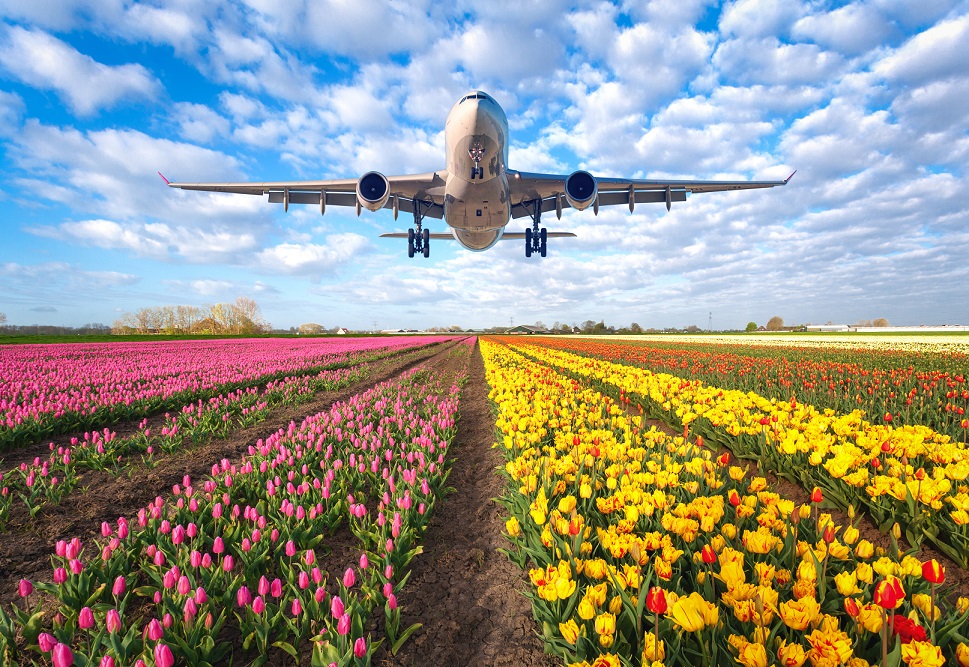
Source: Shutterstock
Flower volumes have been blossoming over recent weeks as people all over the world invest in bouquets for their loved ones. The air cargo industry plays a vital role in helping people celebrate the time of year when love is in the air. Keep an eye on this page to find out how the industry has been tackling demand this busy season.
María Flowers offsets carbon emissions from airfreight
María Flowers and the LATAM group offset 1,297 tons of CO2 through strategic conservation projects in South America.
This compensation corresponds to the total CO2 emissions from all the company’s flower shipments transported with the cargo subsidiaries of the LATAM group in 2023.
María Flowers is the first flower client to participate in LATAM group’s 1+1: Offset to Conserve programme.
In 2023, María Flowers transported over 1,300 tons of flowers from Colombia and Ecuador to Miami. To offset the carbon emissions associated with these shipments, the company compensated 648 tons of CO2 in the region, representing 50% of its emissions.
The remaining 50% was covered by the cargo subsidiaries of LATAM group, resulting in a total impact of 1,297 tons of CO2 offset.
Through the 1+1: Offset to Conserve programme, clients only need to cover 50% of the compensation cost, as LATAM Cargo will cover the remaining 50%.
Clients can access a platform that calculates their CO2 footprint and offers compensation alternatives through the purchase of carbon credits.
DFW and Qatar team up on flower shipments
Dallas Fort Worth International Airport (DFW) and Qatar Cargo last year teamed up on a new freighter flight between South America and Texas and flower volumes on the service have now reached 12 tons per week.
The flight began last spring after DFW worked with Qatar Cargo to launch a special cargo operation that filled a need to supply the local market with flowers that are hours old instead of days.
“We saw a gap in the marketplace for delivery of fresh flowers to the North Texas area that was historically done by trucks that took far longer and resulted in products with significantly reduced shelf life,” said Milton De La Paz, vice president airline relations at DFW.
“With our state-of-the-art cold chain facilities and strategic location, DFW is well-equipped to bring in-demand imports to the Metroplex and the state. Qatar Cargo seized the opportunity to supply the region with fresh flowers direct from Colombia.”
The Qatar Cargo flight operates using a Boeing 777-200 freighter from Bogota, Colombia to DFW.
The cargo holds an array of blooms, ranging from roses and carnations to assorted bouquets. Upon arrival, these flowers are distributed across the state, reaching local distribution centres, supermarkets and florists within hours. Direct delivery to DFW means approximately two-three days of additional shelf life for consumers in the region.
Avianca Cargo doubles up on flower capacity
Avianca Cargo said it has doubled its regular capacity for flowers during the Valentine’s Day season, operating around 300 cargo flights from Colombia and Ecuador to North America between January 16 and February 8, carrying close to 18,000 tons of flowers.
To prepare for the flower season, Avianca Cargo invested in infrastructure in Miami, the flower’s main destination, expanding and modernising the ‘Jetfloor’ of aircraft used and offering a new configuration in the cooler. The carrier said this increased its capacity by 83% to serve up to six flights simultaneously.
Among the most exported flowers this season by the airline were roses and carnations from Bogota; pompons, hydrangeas and chrysanthemums from Medellin; and roses, carnations and gypsophila from Quito.
“This Valentine’s Day season once again positions us as the leading cargo airline transporting flowers from Colombia to North America, doubling our capacity and strengthening the flower industry in the region,” said Diogo Elias, senior vice president of Avianca Cargo.
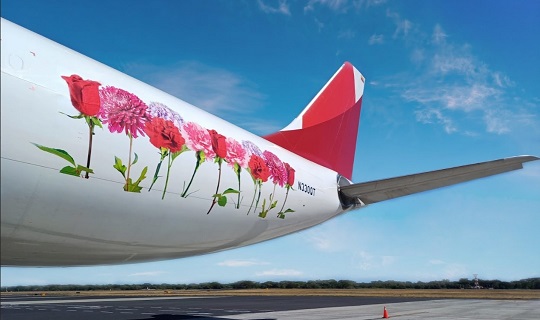
Photo: Avianca Cargo
American Airlines Cargo’s flower flights reach new highs
American Airlines Cargo has moved more than 1.2m lbs of flowers ahead of Valentine’s Day, mainly from Europe and Latin America to locations across the globe.
Out of Europe, Amsterdam Airport Schiphol (AMS) remained the top origin for flowers this year, with tulips being the most common type. During the 10-day peak, the cargo carrier moved fresh flowers from AMS to London Heathrow (LHR) via truck. Top destinations for these Dutch blooms include Boston Logan International Airport (BOS), Dallas/Fort Worth International Airport (DFW), JFK International Airport (JFK), LA International Airport (LAX), Miami International Airport (MIA), and Chicago O’Hare International Airport (ORD).
American also shipped significant volumes of flowers out of Latin American locations, including Bogota El Dorado International Airport (BOG) with the highest volumes, followed by Quito International Airport (UIO) and Medellin Airport (MDE).
This year, the flowers head to key destinations in the US, including BOS, DFW, ORD, and Phoenix Sky Harbor International Airport (PHX), as well as beyond, to locations like LHR, Madrid-Barajas Airport (MAD) and San Juan Luis Muñoz Marín International Airport (SJU). During the Valentine’s Day peak, 90% of the flowers out of Latin America are roses.
“Moving perishable shipments is one of our specialties, thanks to our extensive global network and skilled operations and sales team members around the world,” said Indy Bolina, head of global sales for American Airlines Cargo.
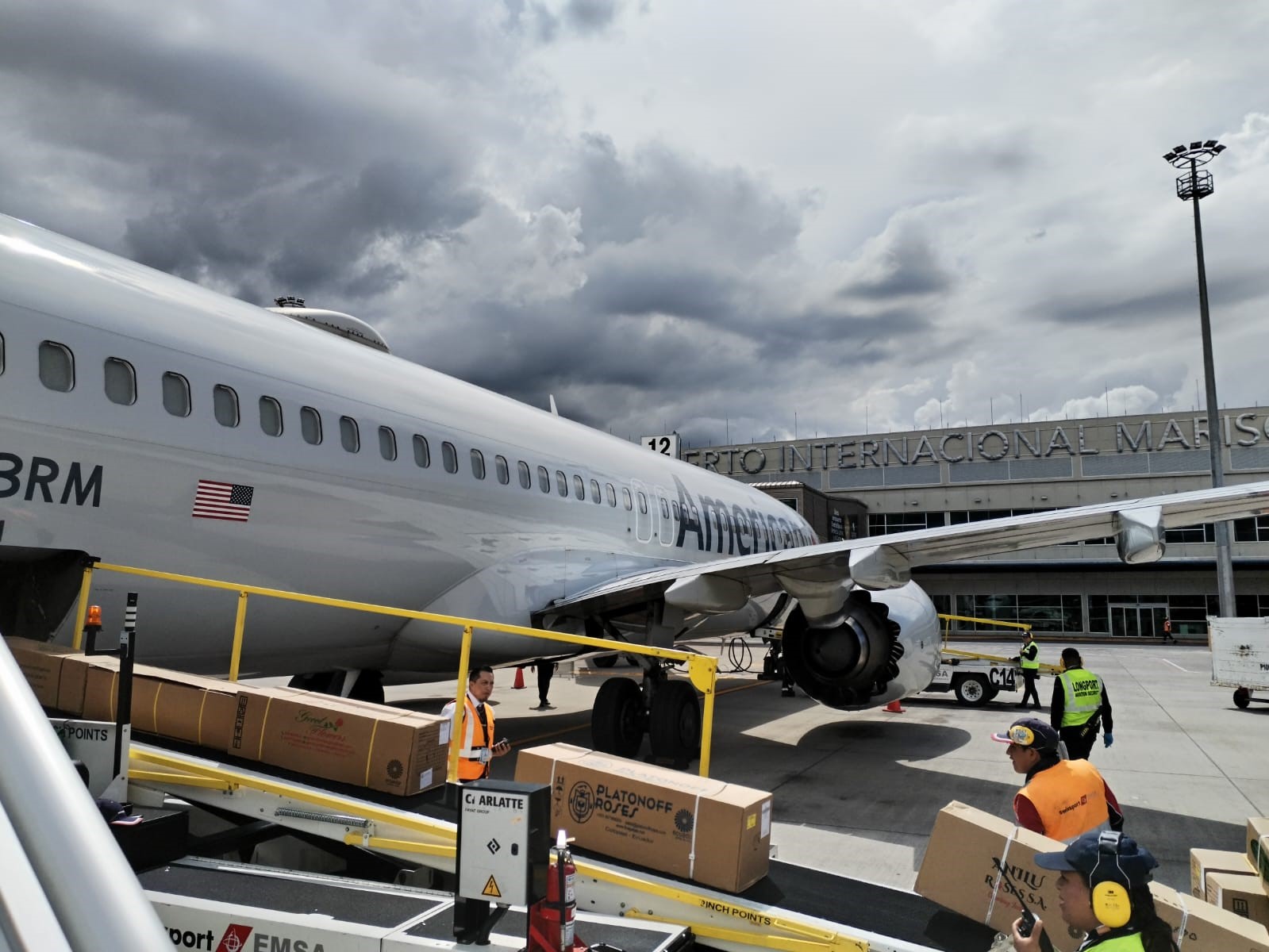
Source: American Airlines Cargo
Swissport’s flower corridor
Over 9,000 tons of flowers have transited Swissport’s flower corridor, from the fields of the Kenyan highlands to Europe.
Every week, 400 to 500 tons of cargo, 85% of which is fresh flowers, pass through Swissport’s expansive 10,400 sq m cargo centre in Nairobi, Kenya. This volume increases by 55% in the run-up to Valentine’s Day. The facility is certified by IATA’s CEIV Fresh programme.
“Every year Swissport successfully handles millions of fresh-cut flowers between January and February, aligning with peak demand during the Valentine’s Day season, which begins in late January,” explains Edwin Musungu, head of cargo services at Swissport Nairobi.
“For the current year, we anticipate to handle approximately 9,000 tons of flowers, a slight decrease from previous years attributed to aircraft capacity constraints, with carriers prioritising the lucrative Chinese market due to the overlap with the Lunar New Year in 2024.”
Key locations for Kenyan flowers in Europe include Liege, Brussels, and Amsterdam, as well as markets in the Middle East and the Far East.
Major carriers, including Etihad Airways, Turkish Airlines, British Airways, the airlines of the Lufthansa Group, China Southern, and Egypt Air use the handler’s facility for their shipments.
“The flowers’ journey at Swissport begins with the delivery truck docking at the hermetically sealed gateway, which connects to the temperature-controlled perishables center,” Swissport said. “After immediate unloading, flowers undergo temperature screening to ensure the cold chain’s integrity.
“In the centre, flowers are assembled into Unit Load Devices (ULDs) based on carrier bookings, with optional vacuum cooling before transport to the cold room for aircraft loading.
“The facility boasts a cutting-edge 110 pallet interconnected cold room, which spans 750 sq m and provides seamless access from landside to airside.”
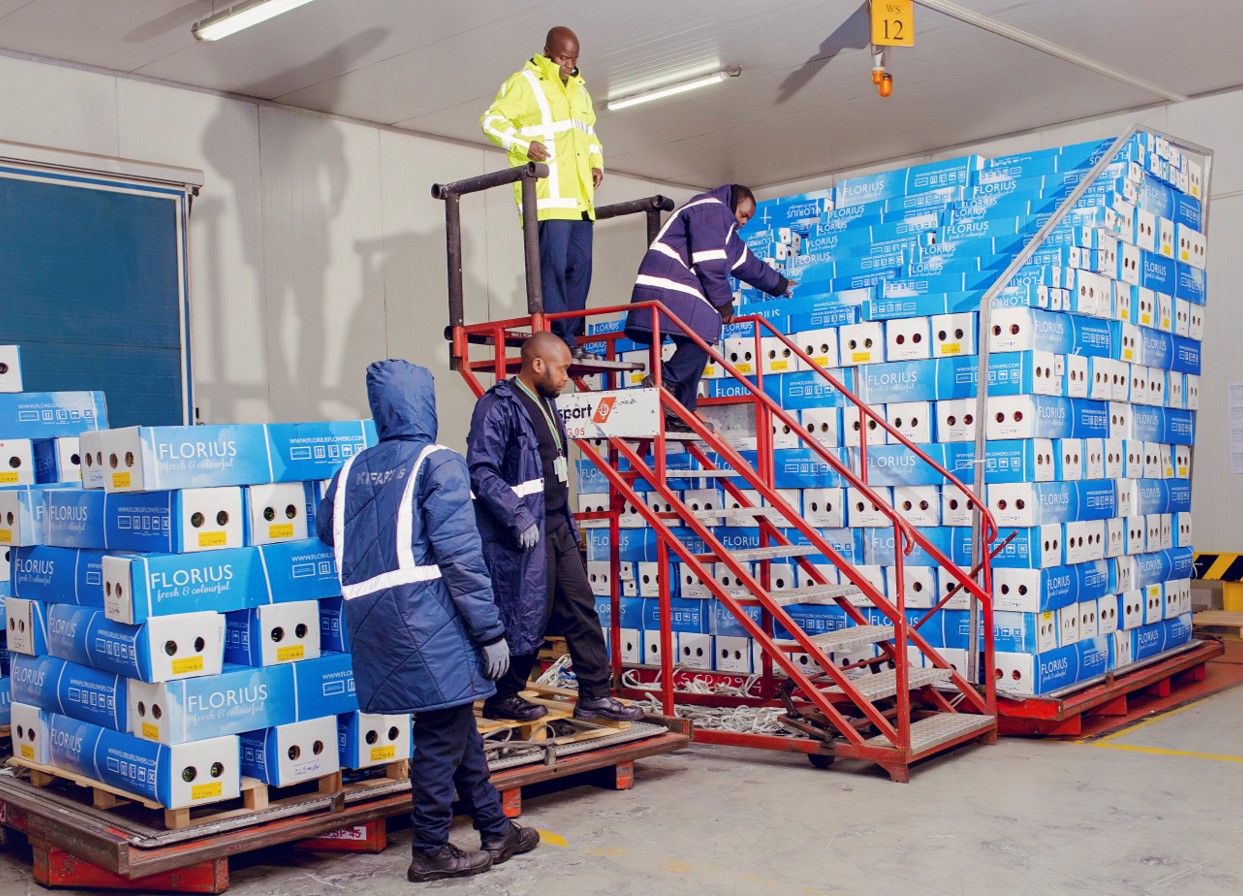
Source: Swissport
LATAM Cargo sees Valentine flower volumes blossom
The LATAM Group’s Valentine’s season flower volumes grew rapidly this year as the carrier added extra capacity to cater for demand.
The carrier group said that its flower volumes from Colombia and Ecuador to North America and Europe increased by 36% to 25,000 tonnes in the 21-day Valentine’s season.
The company temporarily added two freighters – bringing its all-cargo fleet total to 21 aircraft – to meet the demand.
In total, LATAM transported 575m stems, which it pointed out is the equivalent of one flower for every inhabitant of the US, Colombia, Ecuador and France combined.
LATAM said that from Colombia, close to 13,000 tons of flowers, including roses, carnations, and chrysanthemums, were sent from the departments of Antioquia and Cundinamarca in over 220 flights, reflecting a 19% growth compared to Valentine’s Day 2023.
On the Ecuadorian side, the group “significantly increased the capacity offered” for this season, with over 200 frequencies, allowing them to export nearly 11,500 tons of flowers to the main global markets, almost doubling the amount transported in 2023 for Valentine’s Day season.
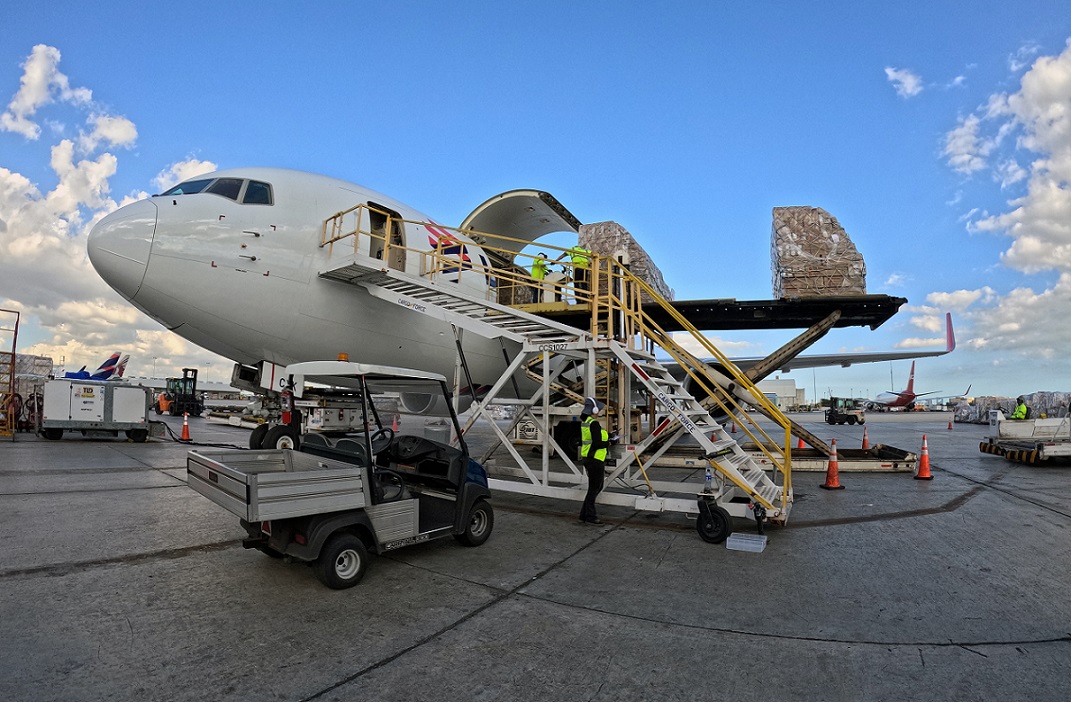
Source: LATAM Cargo
Quito expands flower processing area
Ecuador’s Quito International Airport has expanded its specialist cargo area as it prepares for another busy Valentine’s Day period.
The airport said that companies specialised in cargo palletising at the airport had invested in expanding the manoeuvring area in the cargo apron and their own processing area.
The expansion has added 2,880 sq m to the facilities and will enable much more efficient processing, airport operator Quiport explained.
The companies that invested in the expansion include Novacargo, Servipallet, Pertraly and Novasan.
The four palletising companies assemble the pallets of flower boxes according to the specifications of the aircraft in which they will be transported.
These pallets are stored in cold rooms until they must be shipped to their destinations.
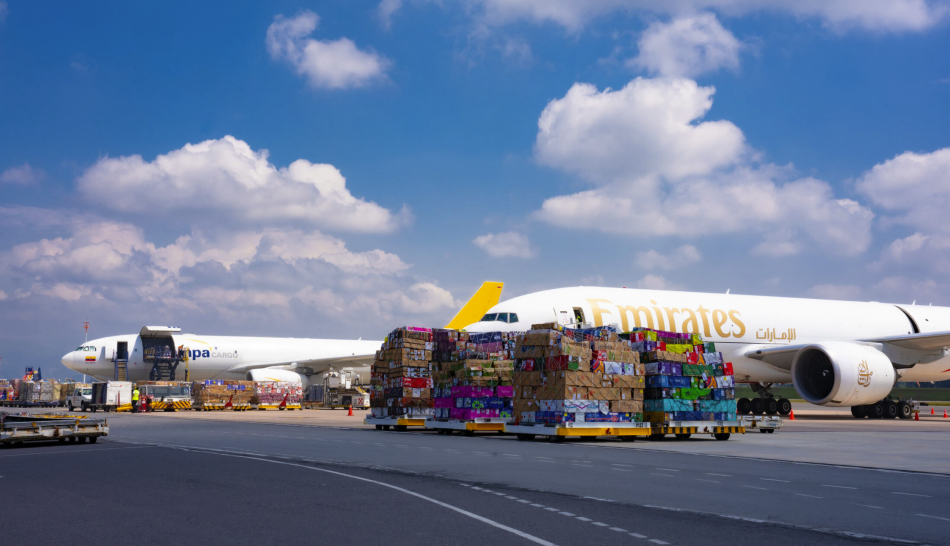
Source: Quiport













